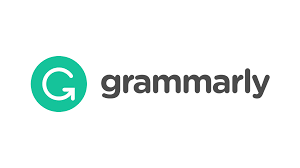Analisis Penerapan Pencatatan Akuntansi berdasarkan SAK EMKM pada UMKM (Studi Kasus Charlie Tani & Petshop)
 Abstract views: 261
,
Abstract views: 261
,
 Fulltext downloads: 306
Fulltext downloads: 306
Abstract
This study aims to determine the accounting records at Charlie Tani & Petshop MSMEs based on the Financial Accounting Standards for Micro, Small and Medium Entities (SAK EMKM). The research method used is quantitative method with primary and secondary data sources. Data collection techniques are carried out by means of interviews, observation, and documentation. The analysis technique used is descriptive analysis by building the application of the accounting cycle and the analysis tool is used based on SAK EMKM. The results showed that accounting records in this business are still simple and not in accordance with accounting standards properly, so that they have not produced appropriate and adequate financial information based on SAK EMKM.
References
DSAK, I. (2016). Standar Akuntansi Keuangan Entitas Mikro, Kecil, dan Menengah. Ikatan Akuntan Indonesia.
Hakim, D. R., & Rosini, I. (2018). AKUNTANSI KEUANGAN 1 (H. Khotimah & I. Pertiwi (Ed; Issue 1). UNPAM PRESS.
Harahap, & Syafri, S. (2015). Analisis Kritis Atas Laporan Keuangan. Jakarta: Raja Gofindo Persada.
IAI. (2016). Standar Akuntansi Keuangan Entitas Mikro, Kecil, dan Menengah. SAK EMKM Ikatan Akuntan Indonesia, 4, 1–54. http://iaiglobal.or.id/v03/files/draft_ed_sak_emkm_kompilasi.pdf
Kartikahadi, H., Syamsul, M., & Sinaga, R. U. (2015). Akuntansi Keuangan Berdasarkan SAK Berbasis IFRS (Edisi Kedua). Ikatan Akuntan Indonesia.
Kurniawan, A. W., & Puspitaningtyas, Z. (2016). Penelitian Kuantitatif, Metode Penelitian Kuantitatif. In Google Books (Issue April 2016).
Marina, A., Wahjono, S. I., Syaban, M., & Suarni, A. (2017). Sistem Informasi Akuntansi. UMSurabaya Publishing.
Permadi, A. H., Rifisani, A., Timur, A. J. L. P., SYakina, A., Wiguna, D. P., Nurwati, D., Purwanto, H., Mutoharoh, H. L., Ariestanto, I., Setyawan, L. H., Hidayatulloh, M., & Ibad, M. N. (2020). Bisnis Umkm Di Tengah Pandemi: Kajian Komunikasi Pemasaran.
PSAK I. (2015). Pernyataan Standar Akuntansi Keuangan. Ikatan Akuntan Indonesia.
Sugiyono. (2014). Metode Penelitian Kuantitatif, Kualitatif dan R & D. Bandung : Alfabeta, 2014.
Susanto, A. (2017). Sistem Informasi Akuntansi : Pemahaman Konsep Secara Terpadu (1st Edition).
Susilowati, L. (2016). Mahir Akuntansi Perusahaan Jasa dan Dagang (Nur Asiyah; Cetakan 1). Kalimedia.
Suwartono. (2014). Dasar-dasar Metodologi Penelitian (E. Risanto; 1st edition).
Ulfah, I. F. (2016). Akuntansi Untuk UMKM. Surakarta: Kekata Group. http://eprints.umpo.ac.id/id/eprint/2828
Undang-Undang Republik Indonesia Nomor 20 Tahun 2008 tentang Usaha Mikro, Kecil, dan Menengah.
Weygandt, JJ., K., P.D., Kieso, & D.E. (2015). Financial Accounting IFRS (3rd ed.). John Wiley & Sons, Inc..











